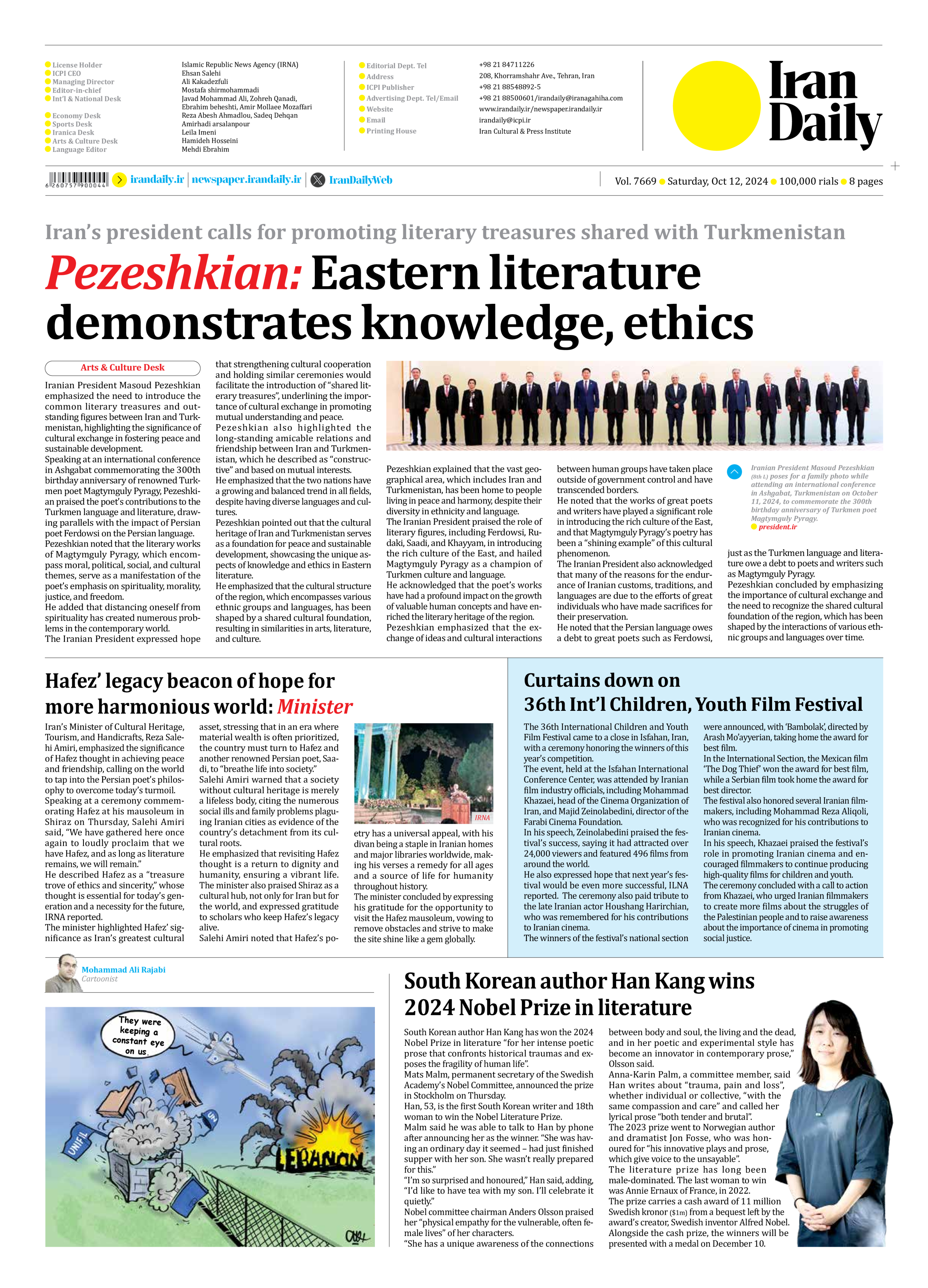
South Korean author Han Kang wins 2024 Nobel Prize in literature
South Korean author Han Kang has won the 2024 Nobel Prize in literature “for her intense poetic prose that confronts historical traumas and exposes the fragility of human life”.
Mats Malm, permanent secretary of the Swedish Academy’s Nobel Committee, announced the prize in Stockholm on Thursday.
Han, 53, is the first South Korean writer and 18th woman to win the Nobel Literature Prize.
Malm said he was able to talk to Han by phone after announcing her as the winner. “She was having an ordinary day it seemed – had just finished supper with her son. She wasn’t really prepared for this.”
“I’m so surprised and honoured,” Han said, adding, “I’d like to have tea with my son. I’ll celebrate it quietly.”
Nobel committee chairman Anders Olsson praised her “physical empathy for the vulnerable, often female lives” of her characters.
“She has a unique awareness of the connections between body and soul, the living and the dead, and in her poetic and experimental style has become an innovator in contemporary prose,” Olsson said.
Anna-Karin Palm, a committee member, said Han writes about “trauma, pain and loss”, whether individual or collective, “with the same compassion and care” and called her lyrical prose “both tender and brutal”.
The 2023 prize went to Norwegian author and dramatist Jon Fosse, who was honoured for “his innovative plays and prose, which give voice to the unsayable”.
The literature prize has long been male-dominated. The last woman to win was Annie Ernaux of France, in 2022.
The prize carries a cash award of 11 million Swedish kronor ($1m) from a bequest left by the award’s creator, Swedish inventor Alfred Nobel. Alongside the cash prize, the winners will be presented with a medal on December 10.







